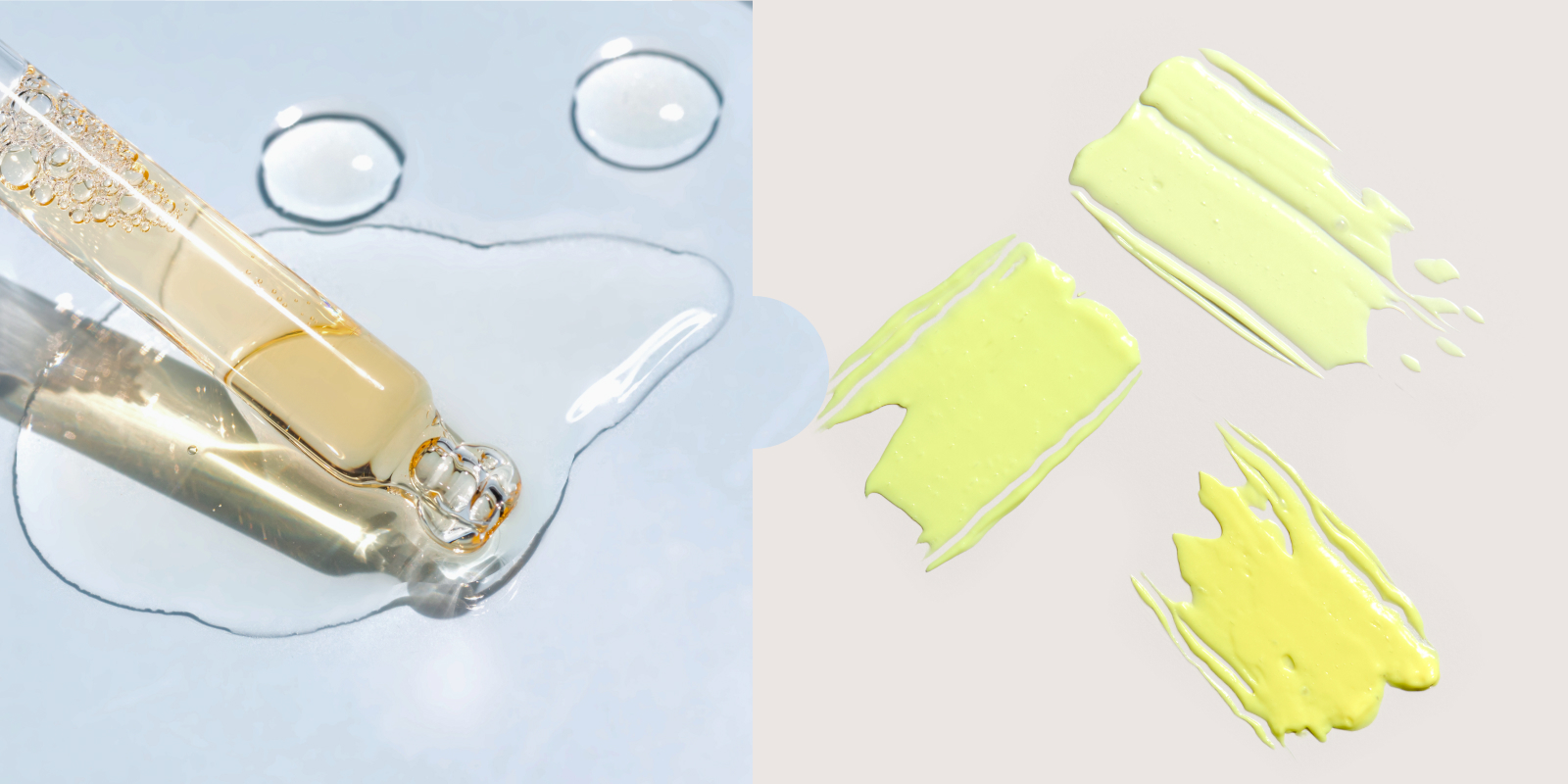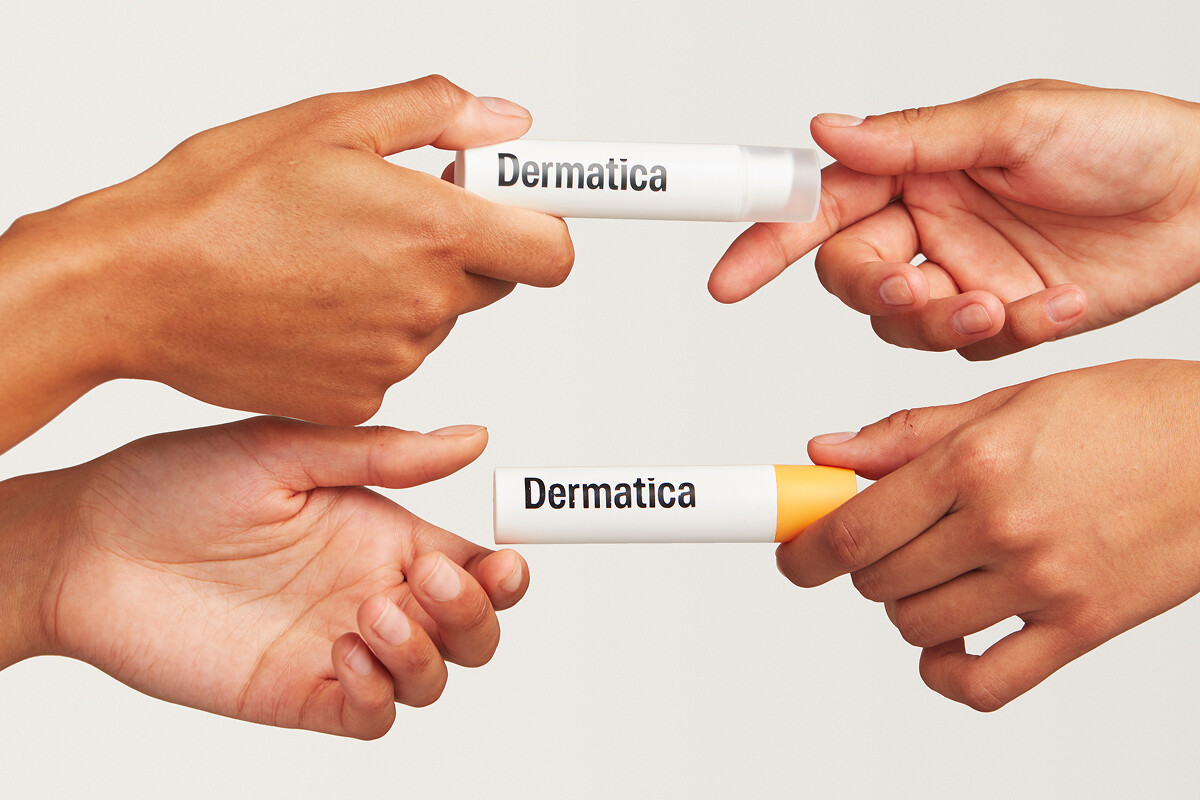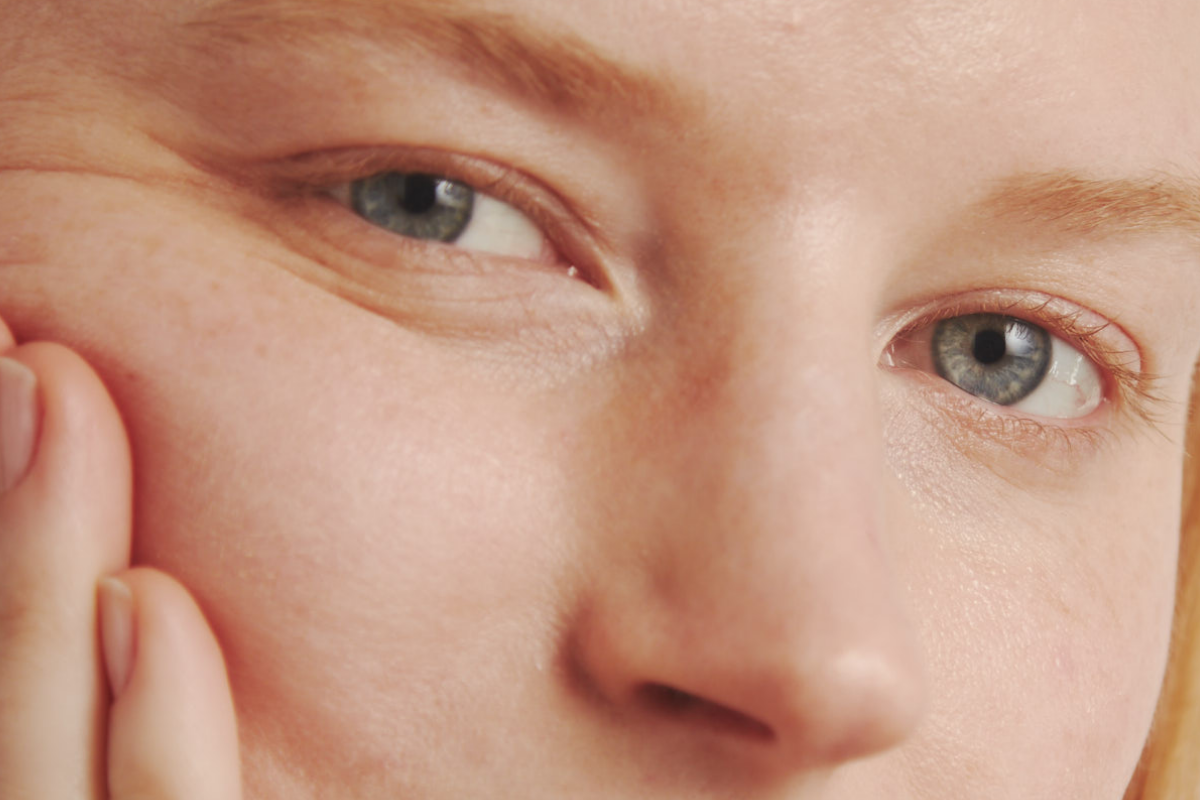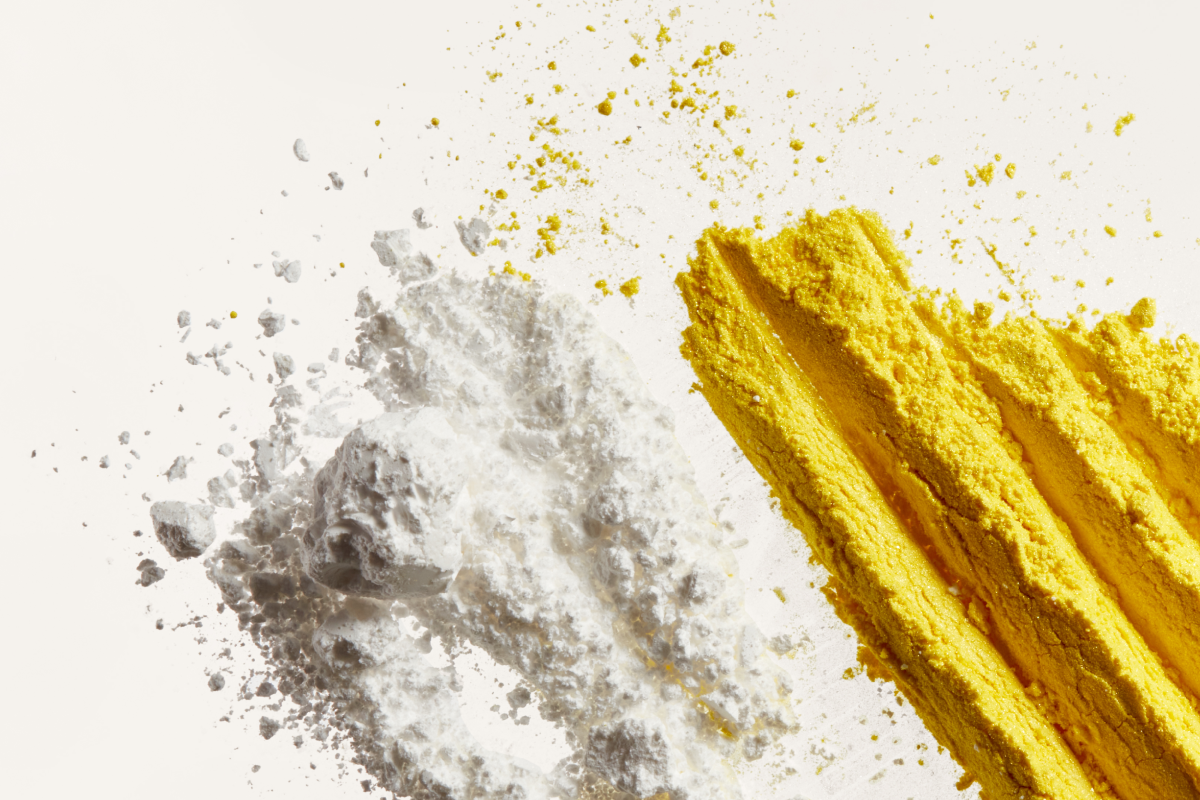Retinol vs. Retinal: Key Differences Explained
Retinoids are a family of skincare ingredients derived from Vitamin A, known for treating a range of skin concerns from ageing to acne. (1) In this article, we’ll focus on two of the most popular forms: retinol and retinal. We’ll explain how they work, what makes them different, and how to choose the right one for your skin.
What Are Retinoids Used For?
Retinoids are popular with dermatologists for their ability to help speed up skin cell turnover, stimulate collagen production and reduce pigmentation. (1,2) They are clinically proven to treat skin concerns like:
– Visible wrinkles, fine lines, skin laxity and a loss of firmness (4)
– Acne, clogged pores, blemishes and breakouts (5)
– Uneven skin tone, dark spots, and hyperpigmentation (2)
– Visible sun damage, enlarged pores and uneven skin texture (4)
– Dullness
How Do Retinoids Work?
Different retinoids vary in potency, effectiveness, and how quickly they work on the skin.
When applied to the skin, retinoids convert into retinoic acid (active form). (3) The key difference between each type of retinoid is how quickly it converts into retinoic acid — the fewer steps it takes to do so, the stronger the retinoid.
The Differences Between Retinol and Retinal
Retinol – A First-generation Retinoid
Retinol is one of the most widely available retinoids. It has been trusted by dermatologists for decades and can easily be bought over-the-counter without a prescription. It’s commonly found in serums, creams, and treatments for ageing and acne. It’s also used to help with visible sun damage.
Key facts about retinol:
– Retinol is inactive. To activate, it converts first into retinaldehyde and then into retinoic acid. It works more slowly than stronger retinoids (like tretinoin), so it takes longer to notice results
– It’s gentler than prescription retinoids, which is ideal if you’re just starting or you have sensitive skin
– Retinol is a good preventative option if you’re just starting to notice signs of ageing
Widely available to purchase without a prescription
Retinal — A Next-generation Retinoid
Retinal is short for retinaldehyde and is considered a next-generation retinoid.
Key facts about retinal:
– Works up to 11 times faster than retinol, as retinal converts to retinoic acid in one step (instead of two).
– Less risk of irritation than prescription retinoids
– Treats and helps prevent advanced signs of skin ageing
– Available without a prescription
Which Retinoid is Right for You?
The right retinoid for you depends on your skin type, whether you’ve used retinoids before and your goals. To make it easier, we’ve put together the guide below to help you compare your options.
Retinol — Gentle Beginner Option
Over-the-counter retinol is a good option for beginners with mild ageing concerns, particularly if you have sensitive skin. However, strengths vary widely between products, and because retinol takes longer to become active on the skin, it may take time to see results.
Retinal — Gentle, Moderate Strength Option
If you’re not quite ready for a prescription yet, but want to see faster results than retinol, retinal (retinaldehyde) is a great option to try.
Dermatica’s multi-level Retinal System is developed with dermatologists to let you set the pace. This next-generation retinal serum comes in three different strengths, so you can level up as your skin adapts.
– Retinal 0.05% Serum – Level 1
– Retinal 0.1% Serum – Level 2
– Retinal 0.2% Serum – Level 3
Combined with a skin-firming biomimetic growth factor and our Barrier Restore Complex, the range is formulated to support sensitive skin, or those new to retinoids.
Prescription Retinoids — Personalised Treatment For Maximum Results
If you aren’t seeing results from over-the-counter skincare, or you want to see faster results — personalised formulas are your most effective topical option. Treatments may include ingredients like tretinoin or adapalene, if a licensed dermatology expert determines it’s suitable for your skin type and concerns.
At Dermatica, your treatment plan and formula are tailored to your skin by our expert dermatology team. As you progress, we adjust your formula at no extra cost, and you’ll have a team of clinicians to support you, whenever you need.
Who Shouldn’t Use Retinal?
Retinoids are not recommended during pregnancy or breastfeeding. If you’re expecting, trying to conceive, or breastfeeding, look for pregnancy-safe ingredients and remove retinoids from your routine.
In cases where retinoids aren’t suitable for your skin or you become pregnant, a Dermatica personalised formula is a great option. This means our experts can tailor a solution to your needs with alternative ingredients.
Things to Consider Before Using Retinoids
It’s important to use retinoids properly, so you see the best results, and to avoid any unwanted side effects.
Both over-the-counter and prescription retinoids can cause temporary side effects, including skin that feels dry, flaky, or that’s peeling or irritated. To prevent and manage these side effects, moisturise before or after applying retinoids, or use the sandwich method in your treatment.
Never use more than one retinoid (Vitamin A) product at a time, or more than once a day. Using too many products, or the same one too frequently, can cause overexfoliation and skin irritation.
Retinoids can also make your skin more sensitive to sunlight and UV damage, which is why we recommend using your treatment at night. Remember to wear broad-spectrum sunscreen (at least SPF30) in the morning and reapply throughout the day.
Ready to Start Your Retinoid Journey?
Retinol and retinal are both effective, non-prescription options. Just remember, whichever one you choose, the key to achieving your skincare goals is consistency. The best results come with long-term use, so once you’ve built a routine, it’s important to stick with it.
For faster results than retinol, without a prescription, Dermatica’s Retinal System is an easy way to reap the rewards of retinoids, without the commitment. But, for faster results, a tailored plan, and access to dermatology experts — neither can beat a personalised formula.
Find out what formulas are suitable for you by visiting our website.
References:
1. Mukherjee S, Date A, Patravale V, Korting HC, Roeder A, Weindl G. Retinoids in the treatment of skin aging: an overview of clinical efficacy and safety. Clinical Interventions in Aging. 2006 Dec;1(4):327–48.
2. Zasada M, Budzisz E. Retinoids: active molecules influencing skin structure formation in cosmetic and dermatological treatments. Advances in Dermatology and Allergology [Internet]. 2019 Aug;36(4):392–7. Available from: https://www.ncbi.nlm.nih.gov/pmc/articles/PMC6791161/
3. Kong R, Cui Y, Fisher GJ, Wang X, Chen Y, Schneider LM, et al. A comparative study of the effects of retinol and retinoic acid on histological, molecular, and clinical properties of human skin. Journal of Cosmetic Dermatology [Internet]. 2015 Nov 18;15(1):49–57. Available from: https://onlinelibrary.wiley.com/doi/full/10.1111/jocd.12193
4. Publishing HH. Do retinoids really reduce wrinkles? [Internet]. Harvard Health. 2022. Available from: https://www.health.harvard.edu/staying-healthy/do-retinoids-really-reduce-wrinkles
5. Leyden J, Stein-Gold L, Weiss J. Why Topical Retinoids Are Mainstay of Therapy for Acne. Dermatology and Therapy [Internet]. 2017 Jun 5;7(3):293–304. Available from: https://link.springer.com/article/10.1007/s13555-017-0185-2
Related Posts
December 22, 2022
0 Comments17 Minutes




